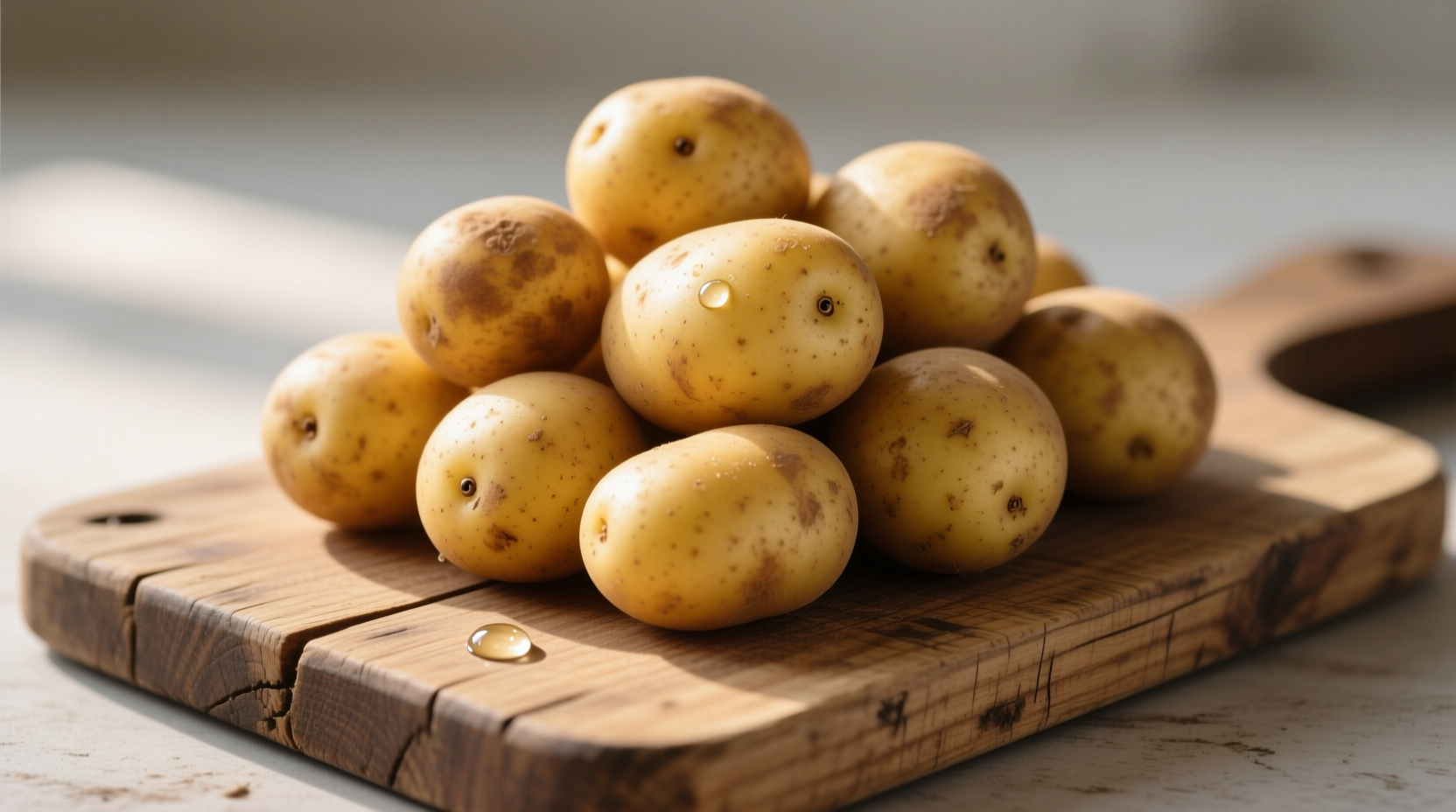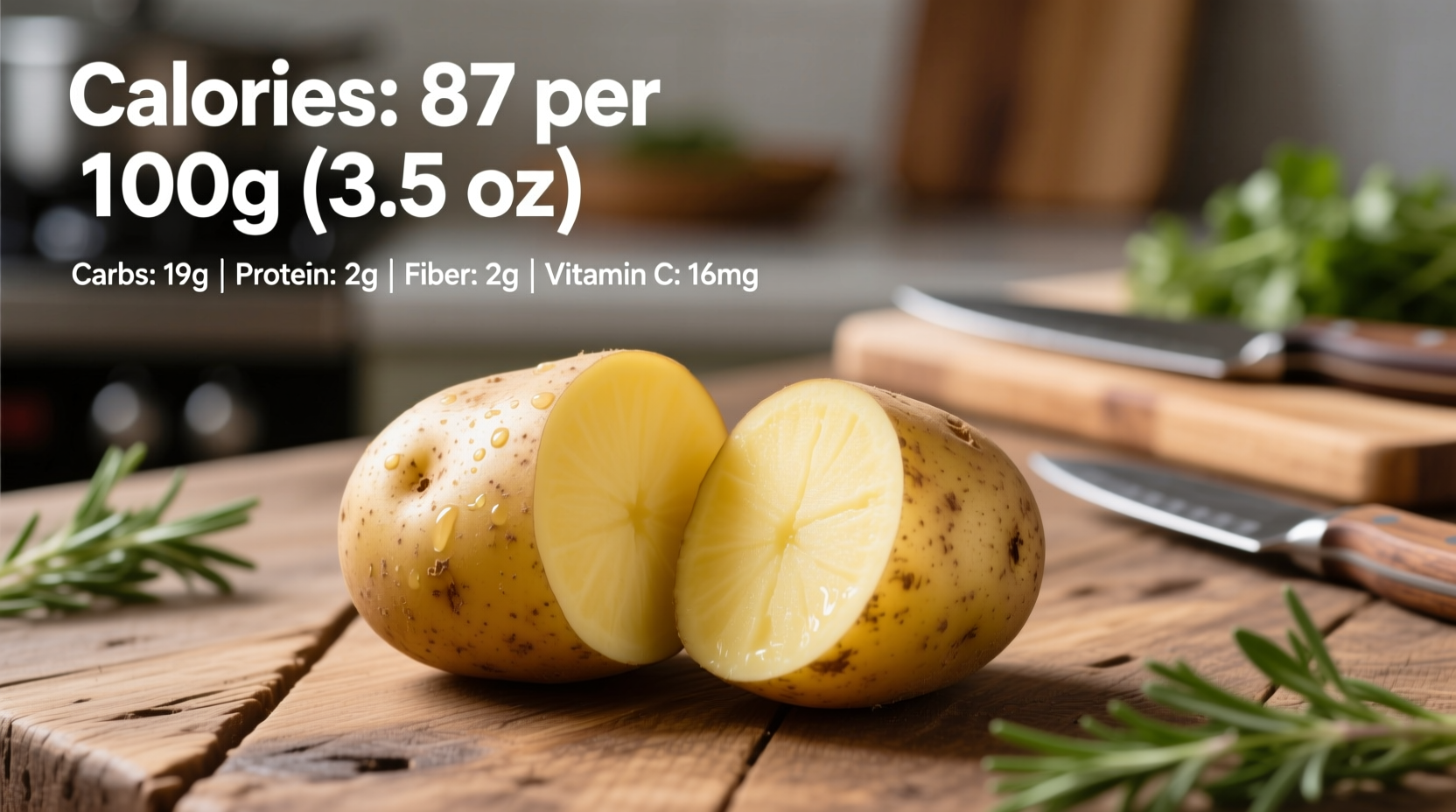Understanding the exact calorie content of Yukon Gold potatoes helps you make informed dietary choices without sacrificing flavor or nutrition. Unlike many starchy vegetables, Yukon Golds offer a perfect balance of creamy texture and essential nutrients that support various dietary goals—from weight management to athletic performance.
What Exactly Are Yukon Gold Potatoes?
Developed in Canada during the 1960s, Yukon Gold potatoes feature distinctive yellow flesh and thin, netted skin. Their naturally buttery flavor means you can often use less added fat when preparing them, making them a smart choice for health-conscious eaters. Unlike Russet potatoes which are higher in starch, Yukon Golds have a medium starch content that provides versatility across cooking methods while maintaining a favorable nutritional profile.
| Potato Variety | Calories (per 100g raw) | Carbohydrates | Fiber | Vitamin C |
|---|---|---|---|---|
| Yukon Gold | 71 | 16g | 2.2g | 18mg (30% DV) |
| Russet | 79 | 18g | 2.1g | 10mg (17% DV) |
| Red Potato | 70 | 16g | 2.0g | 12mg (20% DV) |
Nutritional data sourced from USDA FoodData Central (2023 update). Values represent raw potatoes before cooking.
How Preparation Methods Impact Calorie Content
Your cooking technique dramatically affects the final calorie count of Yukon Gold potatoes. Understanding these variations helps you maintain control over your nutritional intake while enjoying this versatile vegetable.
Boiled or Steamed (no added fat): A medium Yukon Gold (150g) maintains its base 110 calories. This preparation method preserves nutrients while keeping calorie density low—ideal for weight management diets.
Baked: Similar to boiling, baking without added fats keeps the calorie count at approximately 110 per medium potato. The dry heat concentrates flavors, often eliminating the need for butter or oil.
Mashed: Traditional mashed Yukon Golds with milk and butter jump to about 180 calories per serving (150g). However, using low-fat milk and minimal butter keeps them around 130 calories while maintaining their signature creamy texture.
Roasted: Tossing Yukon Gold wedges in one tablespoon of olive oil (120 calories) adds significant calories, bringing a medium potato's total to approximately 200 calories. For lower-calorie roasting, try using cooking spray or broth for moisture.

Nutritional Benefits Beyond Calories
Yukon Gold potatoes offer impressive nutritional advantages that extend far beyond their moderate calorie count. Their yellow flesh indicates higher carotenoid content than white-fleshed varieties, providing antioxidant benefits. With 30% of your daily vitamin C in one medium potato, they support immune function and collagen production.
Their potassium content (about 700mg per medium potato) exceeds that of bananas, making them excellent for maintaining healthy blood pressure. The resistant starch in cooled Yukon Gold potatoes acts as a prebiotic, feeding beneficial gut bacteria and improving digestive health—a benefit often overlooked in standard nutrition discussions.
Practical Dietary Applications
For weight management, Yukon Golds provide satisfying volume with moderate calories. Their fiber content promotes fullness, helping reduce overall calorie intake throughout the day. When following a balanced approach to carbohydrate consumption, a medium Yukon Gold fits comfortably within recommended portions for most dietary patterns.
Athletes appreciate Yukon Golds for their ideal carbohydrate-to-nutrient ratio, providing sustained energy without excessive calories. The natural electrolytes support hydration and muscle function—particularly valuable when consumed with the skin for maximum nutrient retention.
For individuals monitoring blood sugar, Yukon Golds have a moderate glycemic index (around 60), lower than Russets but higher than sweet potatoes. Pairing them with protein and healthy fats slows glucose absorption, making them suitable for most diabetes management plans when portion-controlled.
Common Pitfalls to Avoid
Many people unintentionally transform this healthy vegetable into a high-calorie food through preparation mistakes. Loading Yukon Golds with excessive butter, sour cream, or cheese can triple their calorie content. Restaurant-style preparations often contain hidden fats that dramatically increase calorie density.
Peeling removes valuable fiber and nutrients concentrated near the skin. When possible, leave the thin skin intact—Yukon Gold skins are edible and nutrient-rich. Additionally, frying Yukon Golds (as in hash browns or home fries) increases calorie density by 50-100% compared to healthier cooking methods.
How Yukon Golds Fit Into Modern Nutrition Science
Recent research challenges outdated notions about potatoes and weight management. A 2022 study published in the Journal of Nutrition found that participants who included potatoes as part of a balanced diet experienced similar weight loss results to those following traditional low-carb approaches. The key factor was preparation method and overall dietary context—not the potatoes themselves.
Unlike processed carbohydrate sources, whole potatoes like Yukon Golds provide complete nutrition packages with naturally occurring vitamins, minerals, and fiber. Their satiety index ranks higher than pasta or rice, meaning they keep you feeling full longer per calorie consumed—a valuable trait for sustainable eating habits.











 浙公网安备
33010002000092号
浙公网安备
33010002000092号 浙B2-20120091-4
浙B2-20120091-4